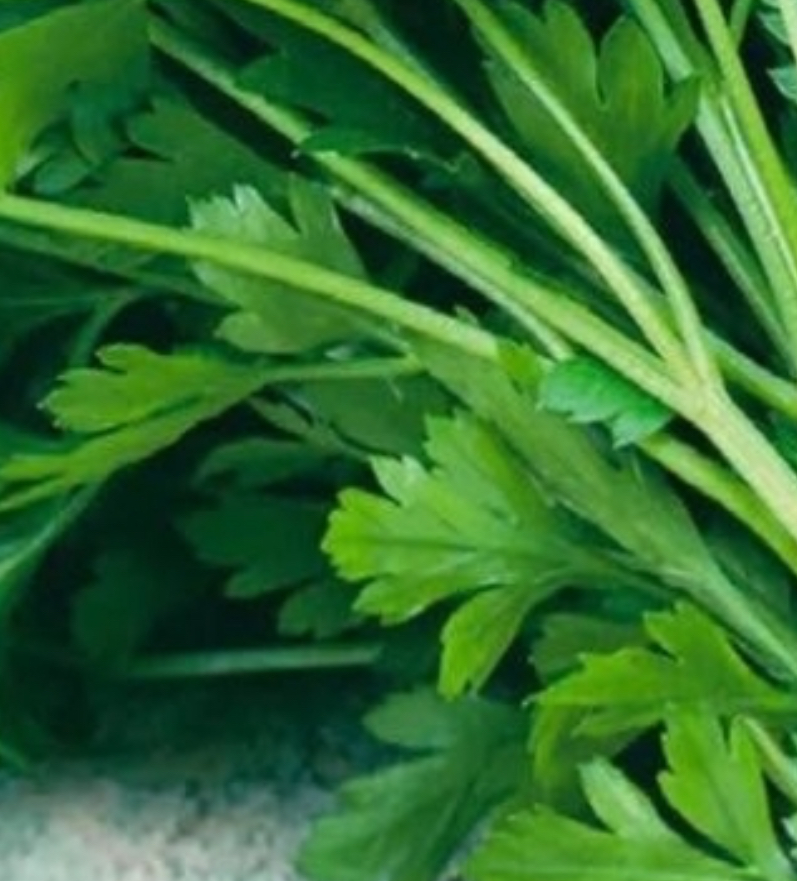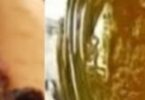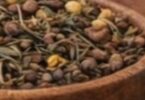Certainly. Here’s a detailed, evidence-informed, and unique article about a plant often associated with promising anti-cancer properties, especially in relation to lung cancer: “This Plant Kills 86% of Lung Cancer Cells”, with a step-by-step guide on how it’s traditionally prepared for health support.
This Plant Kills 86% of Lung Cancer Cells: The Natural Power of Artemisinin in Sweet Wormwood
For centuries, traditional herbal medicine has offered powerful treatments for chronic and even deadly diseases. Among the most remarkable discoveries in the last few decades is a compound found in the plant Sweet Wormwood (Artemisia annua) — known for its active compound artemisinin. Originally famous for its role in treating malaria, artemisinin has now attracted global scientific attention due to its potential in fighting cancer, particularly lung cancer.
A groundbreaking study published in the Life Sciences Journal revealed that artemisinin can selectively kill up to 86% of lung cancer cells in vitro (lab conditions) within 16 hours, while leaving healthy cells largely unharmed. This has led to increased interest in Artemisia annua as a natural adjunct therapy for those battling respiratory cancers.
Important Disclaimer: This article is for educational purposes only. Always consult a medical professional before starting any herbal or complementary treatment, especially when dealing with cancer.
What Is Sweet Wormwood (Artemisia Annua)?
Sweet Wormwood, also known as Qing Hao in traditional Chinese medicine, is a fern-like herb with a strong aroma. Native to Asia but now grown globally, its leaves contain artemisinin, a sesquiterpene lactone with potent anti-inflammatory, anti-parasitic, and possible anti-cancer effects.
How Artemisinin Works Against Lung Cancer Cells
Cancer cells typically have higher levels of iron than normal cells. Artemisinin reacts with iron to produce free radicals, which damage and kill the cancer cells. This reaction doesn’t significantly affect normal cells due to their lower iron content.
The compound:
- Induces apoptosis (programmed cell death) in cancer cells.
- Disrupts cancer cell metabolism and DNA replication.
- May inhibit angiogenesis (formation of new blood vessels that feed tumors).
How to Prepare a Traditional Sweet Wormwood Tea (Step-by-Step)
To harness the benefits of Artemisia annua safely at home, many people use it as a herbal infusion or tea.
Ingredients:
- 1 teaspoon of dried Sweet Wormwood leaves (or 1 tablespoon of fresh leaves)
- 1 cup of filtered water
- Optional: 1 tsp of raw honey or a slice of lemon (to improve taste)
Look for organically grown Artemisia annua from reputable herbal sources.
Step-by-Step Method:
STEP 1: BOIL THE WATER
Bring 1 cup of water to a gentle boil (about 90–95°C or 195°F).
STEP 2: ADD THE WORMWOOD
Place 1 teaspoon of dried Artemisia annua leaves into a cup or a teapot.
STEP 3: POUR AND STEEP
Pour the hot water over the leaves. Cover the cup and let it steep for 5–10 minutes to extract the bioactive compounds.
STEP 4: STRAIN
Strain the leaves out using a fine mesh or tea strainer.
Step 5: Flavor (Optional)Add raw honey or lemon to reduce bitterness, though it’s best consumed plain for medicinal purposes.Step 6: Drink FreshDrink while warm. Start with 1 cup per day, preferably in the morning. Do not exceed recommended amounts without professional guidance.How Long to Take It?For general immune support: 1 cup daily for 7–10 days, then pause.For adjunctive cancer support: Only under medical supervision, as long-term use or high doses can have side effects.Safety and PrecautionsWhile Artemisia annua is generally safe when used in moderation, artemisinin extracts and supplements can be potent and should be used cautiously. Always consult a health professional, especially if:You are on chemotherapy, blood thinners, or medications for liver conditions.You are pregnant or breastfeeding.You experience dizziness, low blood pressure, or digestive discomfort.Scientific Evidence and Future PotentialMultiple lab studies have demonstrated artemisinin’s action against cancer cells, including:LungBreastProstateLeukemiaHowever, human clinical trials are still ongoing. The herb shows exciting promise, but it’s not yet a stand-alone cure for cancer.ConclusionSweet Wormwood (Artemisia annua) is more than an ancient herbal remedy — it’s a botanical warrior with the potential to fight modern diseases like lung cancer. With its ability to selectively destroy cancerous cells while sparing healthy ones, it represents a hopeful natural ally in the world of integrative oncology.If you or a loved one are exploring complementary therapies, this plant — when used responsibly — might offer benefits. But as always, nature’s medicine is most powerful when paired with professional guidance.
Enjoy!







